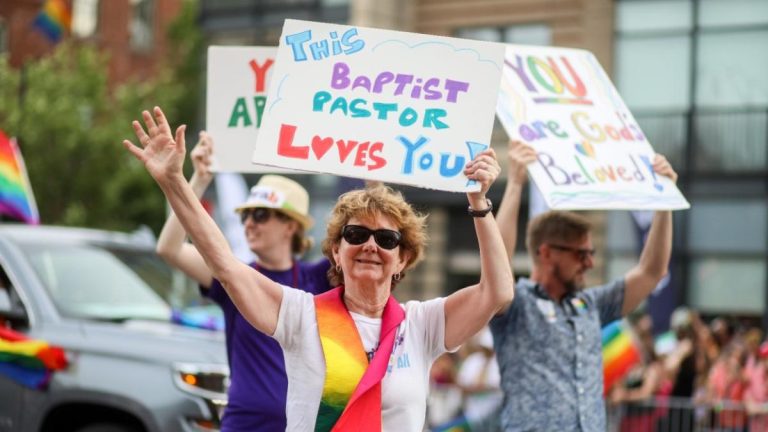Christianity is a complex topic among LGBTQ+ people, but there are still groups in the community who adhere to their faith – sometimes to the detriment of their health, sometimes to their benefit.
Nearly two-thirds of LGBTQ+ people raised as Christians no longer identify with the religion, a study finds. new study from Utah State University and the Williams Institute at the University of California, Los Angeles School of Law. Among those who remain, adults report more internalized homophobia and transphobia.
Men who were older, black, cisgender and/or living in the South were more likely to continue to identify as Christian as adults, the report found. Among those who remained Christians, more reported having undergone conversion therapy than those who left or were never part of it.
Those who were never raised Christian reported coming out to family and friends younger than those who were, and those who left Christianity were more likely to report having been victims of bullying as children than those who remained Christians.
Although the experiences of LGBTQ+ people who identified as Christian at some point in their lives differ from those of other groups, the groups do not differ in health indicators, including stress and well-being. Both groups reached out to family and friends at similar rates, and both reported a “sense of connection” with the LGBTQ+ community, including in terms of levels of social support.
However, some groups have particularly benefited from their Christian faith, and others have not. Black LGBTQ+ people were more likely than their white counterparts to have been raised Christian and less likely to leave Christianity. Of the 87% of Black LGBTQ+ people who were raised Christian, 54% remained Christian.
“Some LGBTQ people, for example Black LGBTQ people, maintain their connection to Christianity despite minority stressors because social, cultural, and religious support outweighs negative experiences,” co-author Ilan Meyer , Distinguished Senior Fellow in Public Policy at Williams University. Institute, said in a statement.
“For other LGBTQ people, the increased experience of minority stressors within Christian environments may contribute more to stigma than support, leading them to distance themselves from their faith and religious communities, sometimes seeking LGBTQ-affirming religious or spiritual environments,” he continued.
This appears to be true for transgender people, as the report finds that those who have never been Christians experience less discrimination than those who were raised Christian. This alienated transgender adults from religion in a way that LGB adults did not. LGB people who had never been Christian experienced higher psychological distress than LGB people who remained Christian.
This phenomenon is not specific to the LGBTQ+ community, since the study suggests that “religiosity can have a protective effect”. Regardless, the researchers believe this information about Christianity in the queer community could benefit healthcare providers when working with LGBTQ+ patients.
“The finding that LGBTQ people are likely to have been raised in a religious environment, regardless of their current identification, may be particularly useful to therapists working with LGBTQ clients,” said lead author Tyler Lefevor of the Utah State University. “Therapists may want to encourage clients to express the elements they find valuable about religion (e.g., believing, bonding, behaving, belonging) and either grieving or working to maintain these aspects.”


